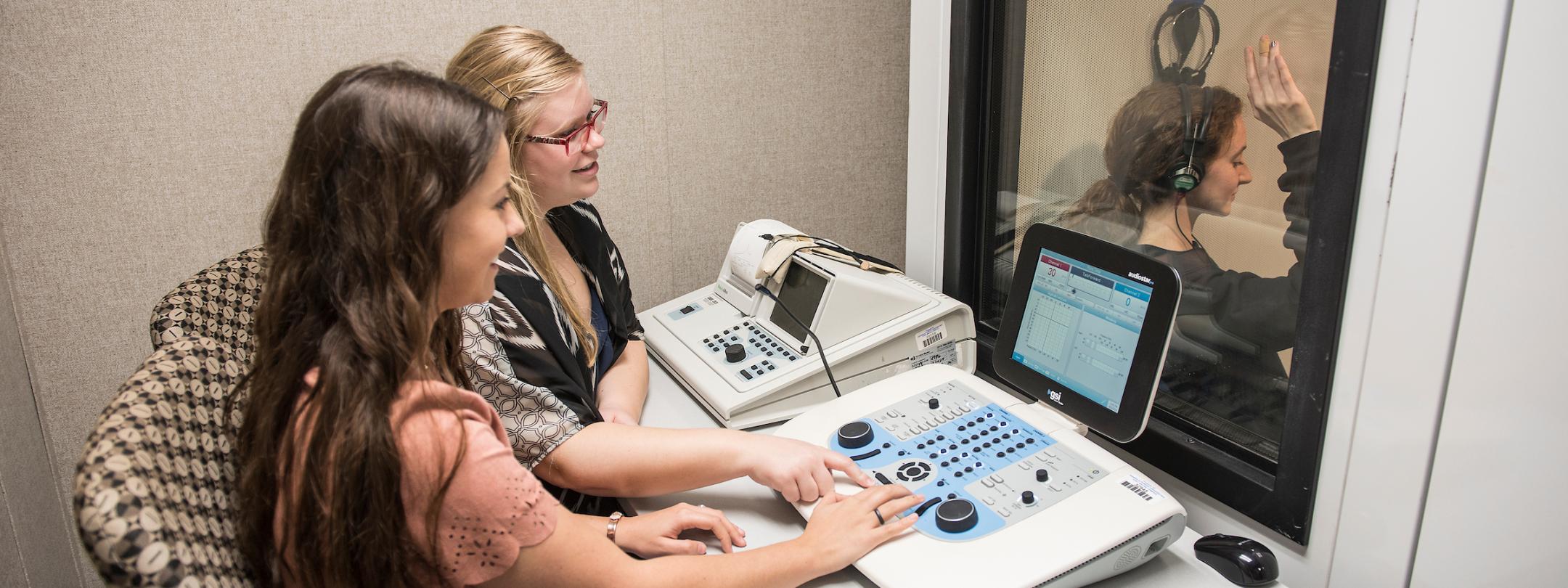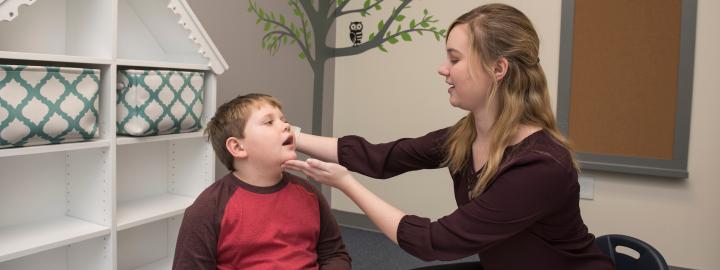
Communication Sciences And Disorders Programs
Give others the tools they need to communicate effectively.
Your kind heart and helping nature will take you far. We’re simply here to provide you with the skills and expertise you need to pursue a fulfilling and rewarding career.

Communication Sciences and Disorders (B.S.)
There are so many great reasons to pursue the bachelor of science in communication sciences and disorders—to help others, to make a difference, to improve literacy, to grow as a person, to address unique and challenging needs—but the best reason of all is your reason. No matter why you want to pursue this fulfilling line of work, you’ll learn exactly what you need to make it happen right here.

Program
Highlights
Program Highlights
- The development of critical-thinking, research, motivational, and clinical skills
- Experience with data collection and interpretation
- Understanding compassion and advancing your own
- Support from the Mastodon community
- A prestigious Purdue degree
career and salary data
How far will you go?
*General labor market and salary data are provided by Lightcast via O*NET and may not represent the outcomes experienced by Purdue Fort Wayne graduates in these programs. Purdue Fort Wayne graduates in these programs may earn salaries substantially different or less than the amounts listed. Salary and employment outcomes vary by geographic area, previous work experience, education, and opportunities for employment that are outside Purdue Fort Wayne’s control. Purdue Fort Wayne does not guarantee employment placement, salary level, or career advancement.
Student Learning Outcomes
Upon completion of this degree, students will be able to demonstrate the following learning outcomes:
- Basic knowledge of the normal nature and development of speech
- Basic knowledge of language and hearing
- Basic knowledge of assessment, treatment, and prevention of speech, language, and hearing disorders
- Basic clinical skills of assessment
- Basic skill in the design and implementation of appropriate treatment plans
- Oral and written communication abilities and interpersonal skills needed for the assessment and treatment of speech, language, and hearing disorders
- Audiologist (typically requires a graduate degree)
- Behavioral Therapist
- Developmental Communication Therapist
- Speech-Language Pathologist (typically requires a graduate degree)
- Speech-Language Pathology Assistant


